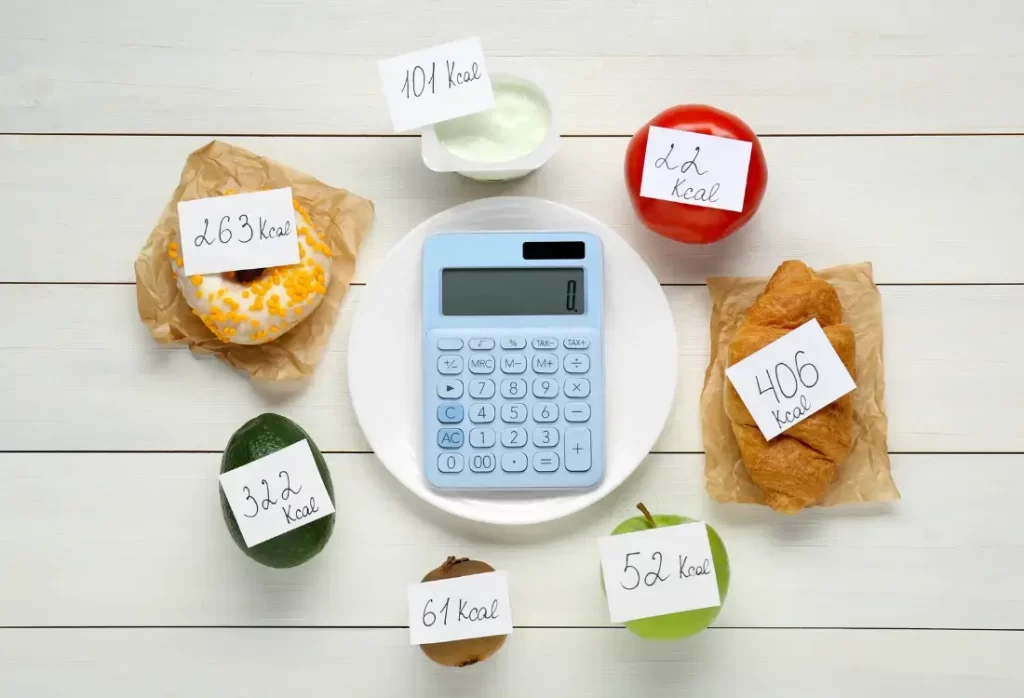Let’s make a couple of things clear first: Dieting and weight management do not require calorie counting. In my opinion, the best way is to lose weight by eating as much as you want while staying full. It’s slower, but much more pleasant and sensible.
The theme of this blog is calorie counting, which is used in many contexts. For some, calorie counting can be a useful guide to eating, as long as it is used to learn good eating habits, and not just to aim for minimal eating. I would still say that calorie counting to support eating should mainly be done by those who are already caught up in it. If calorie counting is unfamiliar, it might be better to keep it that way.

Why should a Dieter’s Diet not be below 1500 Kcal?
In various contexts, I have stated that a dieter should not eat less than 1500 kcal. For example, in the ancient Finland’s largest weight management service Kiloklubi – whose guidelines I was involved in planning – we did not recommend eating less than 1500 kcal.
We categorically stated “not below 1500 kcal”. Exceptions were those with severe mobility impairments and very small individuals. Where does such a limit come from? One might think that such a limit does not take individual starting points into account. The limit is, of course, a line drawn in the sand, but it is much more individual than many think.

A Diet that is Too Low in Food also Reduces Muscle Mass.
From the perspective of short-term weight loss mathematics, it is clear that the less you eat, the more you lose weight. It is worth considering the matter more broadly, as the goal is permanent and quality weight loss.
Quality weight loss mainly refers to health and functional effects, which largely boil down to whether the weight loss comes from muscles or fat. The less you eat, the more muscle is lost during weight loss. By increasing exercise and protein, muscle loss can be mitigated, but if you eat too little, muscle loss cannot ultimately be prevented.
For sustainable weight loss, it is importantthat hunger management remains under control and even develops, and during weight loss, you can already learn those future permanent lifestyle habits – during dieting, there should not be many things that you do not feel you can maintain for years. However, eating too little derails hunger management badly. Physiologically, it triggers a counterattack on eating, and psychologically, eating too little inevitably leads to fighting hunger instead of understanding it – resulting in poorer satiety and increased cravings.
The harms of a diet that is too low in food extend further for well-being, but these are the core problems for weight management.

How Does the 1500 Kcal Limit Suit many Dieters?
How can one and the same limit suit everyone? Things are not so black and white that exactly 1500 kcal would be suitable for everyone, but with the following examples, you can see how the limit suits most.
The Same Limit Helps both Men and Women
Man or woman: in principle, the limit is perceived from the women’s perspective. But even though men are larger and the limit could be higher, their hunger management seems to tolerate more than women, so men manage with the same limit.
People with Significant Overweight
For those who are clearly overweight, daily energy consumption almost inevitably revolves around and exceeds 2500 kcal per day. If there is a lot of size, there is also consumption if even a little movement is involved. Such a person gets a significant calorie deficit of over 500 kcal per day, theoretically losing half a kilo per week even if they eat over 1500 kcal.
A Normal-Weight Person who Wants to Lose a few Kilos
For those close to normal weight, significant weight loss more easily takes away muscle, so they should lose weight more slowly compared to someone who is overweight. A significantly overweight person can lose weight relatively quickly without problems, but a normal-weight person cannot. A person who exercises may have a consumption of over 2000 kcal, and there is room to take a moderate calorie deficit without the food’s calorie count dropping below 1500 kcal.
If consumption falls below 2000 kcal, then there is too little movement. In this case, it is primarily worth considering how to get more exercise, rather than concluding that you don’t exercise and therefore eat less than 1500 kcal. The importance of exercise in the quality of weight loss is emphasized in this “toning phase.”

Why Do People Eat less than 1500 Kcal?
If you eat just a little below 1500 kcal, you might manage with such a low-calorie diet, but if you eat 1200 kcal per day, no one really manages well with that. That way, you lose weight faster, but the problems grow.
The disproportionately large loss of muscle mass is a certainty, for which not much can be done. Cravings and hunger also increase – for some, they remain under control or are completely absent during the actual dieting project. When everyday life begins and the enthusiasm for dieting diminishes, cravings and hunger usually return twice as bad. As a result, weight management becomes more difficult in the future, and weight may rise back.
Learning new permanent lifestyle habits is the core of weight loss results. Learning new, better, but still flexible eating habits is a balancing act – even with a modest energy deficit. If someone eats 1200 kcal per day, there is no room during that time to learn new, flexible, and diverse eating habits where the body is listened to. These individuals think they will learn it later, but then it is really difficult. All the body’s hunger signals are completely confused after excessively strict dieting.
In summary, those with a low-calorie diet inevitably lose more muscle, and it is likely that weight loss will need to be planned again in a year. No matter how much you try to decide that the weight should not rise again.

Who Eats less than 1500 Kcal – Do You Recognize Yourself?
Those who eat less than 1500 kcal usually fall into two camps: Those who want to lose weight quickly, and those who feel they do not lose weight with more.
For those who want to lose weight quickly, it is easy to say that “we all want things quickly,” but in this case, it is simply not sensible. For those who feel they do not lose weight with more eating, it is often also a matter of patience. Often behind these is the thought that the weight must decrease visibly immediately and every week thereafter. They do not monitor the waist or have the patience to wait a few weeks for the results to start showing. Or the calculation package is otherwise scattered.
For those who Want a more Precise Limit, Monitoring Basal Metabolism is Suitable.
If you want a more individual limit that takes into account the starting points presented above, it could be called your own basal metabolism. In other words, do not eat less than your own basal metabolism. Everyone consumes more than their own basal metabolism. It helps with weight loss, but it is also a good indicator of the level below which problems are likely to arise.
You can roughly determine the basal metabolic rate using various body composition meters and equations.
It is clear that the “not below 1500 kcal” motto works as part of moderate weight loss, where usually less than 0.5 kg is lost per week. Traditionally, the guideline for suitable weight loss is 0.5–1 kg per week, but this is gradually becoming a thing of the past. Slow weight loss and preventing minimal eating is more pleasant and better weight loss.
Book an Appointment with an Expert









